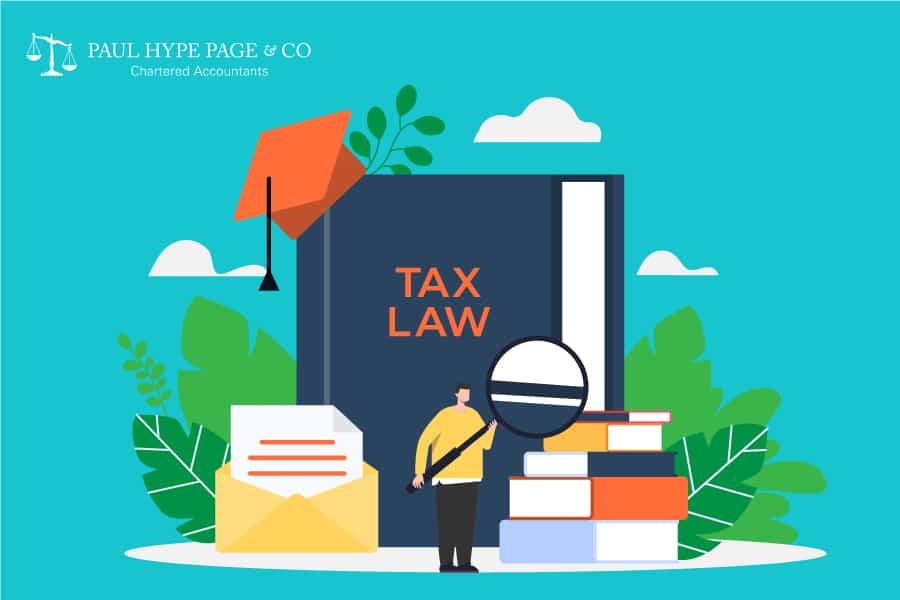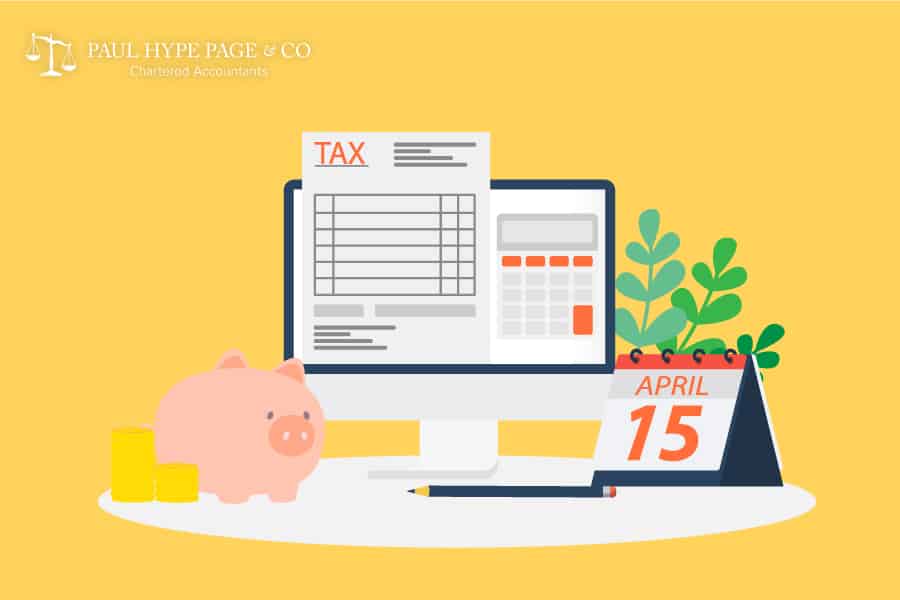Businesses in Singapore always look out for ways through which they can reduce their corporate tax burden. To support businesses, the government has established a wide range of programs, which include a number of tax exemption schemes that are designed to cut business income tax bills. Schemes offering this competitive 17% corporate tax rate go a long way in optimizing companies’ tax liabilities while encouraging growth and expansion in the Singapore Business environment.
Singapore Corporate Income Tax Exemptions and Deduction Schemes
Some of the corporate tax exemptions and deduction schemes avail themselves in encouraging business growth, innovation, and internationalization in Singapore. Such schemes will either reduce the taxable income of a company or, hence its overall tax payable. Below are some of the key exemptions and deduction schemes available to businesses in Singapore:
Partial Tax Exemption (PTE) for Companies
With the Partial Tax Exemption scheme, all qualifying companies in Singapore can instantly enjoy this, regardless of their size. The exemptions include:
- 75% of the first S$10,000 of normal chargeable income is exempt from tax.
- 50% of the next S$190,000 of normal chargeable income is also enjoying the same tax exemption.
Therefore, all companies enjoy reduced tax on their profits at a certain percentage level, and this ensures that the smaller businesses are taken care of.
Startup Tax Exemption (SUTE) Scheme
The current scheme on tax exemption for startups targets providing substantial support to newly incorporated companies in terms of tax for the initial period of their operation. Qualifying startups can enjoy differential tax treatment for the first three consecutive YAs as follows:
- 75% exemption on the first $100,000 of normal chargeable income;
- 50% exemption on the next $100,000 of normal chargeable income.
The scheme thus allows the startups to save cash flow during their first years, thereby encouraging entrepreneurship and the development of business within the country as a whole.
Tax Incentives for Research and Development
Singapore also has incentives for firms to innovate and invest in technology through R&D tax incentives. A company may be allowed a tax deduction of up to 250% of qualifying R&D expenditure incurred in Singapore. This will include expenditure that involves staff, material, and outsourced R&D activities. The incentive promotes innovation and assists businesses in developing state-of-the-art products and services.
Double Tax Deduction for Internationalization (DTDi)
To encourage firms to internationalize, Singapore offers the Double Tax Deduction for Internationalization scheme. With this scheme, eligible companies can enjoy 200% tax deduction on eligible expenses to support the following business activities conducted overseas:
- Market research study and feasibility study
- Overseas trade fair and trade mission
- Setting up overseas marketing office
The scheme is designed to help businesses cover some of the internationalization expenses when expanding their enterprise to new markets.
Productivity and Innovation Credit (PIC) Scheme
While the Productivity and Innovation Credit scheme expired in 2018, other productivity-centric initiatives have taken over, such as the Productivity Solutions Grant and the Automation Support Package. These support generous grants for companies investing in automation, digitalization, and innovation to further efficiency and productivity.
These exemption and deduction schemes form part of Singapore’s corporate tax in order to create an excellent and dynamic business environment by helping companies reduce costs, encouraging innovation, and promoting the growth of businesses both domestically and internationally. With Singapore having one of the lowest corporate tax rates in the world at 17%, together with these schemes, it is definitely one of the most attractive locations to do business in.
Benefits of Optimising the Use of Tax Exemption Schemes
Tax exemption and deduction schemes give businesses the great financial privilege of minimizing tax burdens and ploughing the saved amount into growth and innovation. Examples of such schemes are the Start-up Tax Exemption Scheme and the Double Tax Deduction for Internationalization, incentivizing cash flow, competitiveness, and enlargement into new markets. Through the utilization of such advantages, businesses in this economy are in a good position to manage operational costs more affordably, increase productivity, and find new opportunities both nationally and globally, hence setting them up for success in Singapore’s dynamic, long-term business climate.
Tax Exemption for New Startups
The Inland Revenue Authority in Singapore has a Startup Tax Exemption scheme put in place to encourage entrepreneurship by granting tax reliefs to qualified new companies during their pioneer years of operation. Basically, it is a government provision that aids such companies by lessening their financial stress so that they may have ample room for growth and subsequently assert themselves in the country.
Eligibility Criteria
For a start-up to be eligible for the SUTE Scheme, it needs to fulfill the following conditions:
- The Company must be an existing company that is incorporated in Singapore.
- The Company must be a tax resident of Singapore for the relevant YA.
- The Company must not have more than 20 shareholders at any time during the basis period and at least one individual shareholder must hold at least 10% of the total number of issued shares.
Exclusions
The following companies are ineligible for the tax exemption:
- Companies whose primary activity is investment holding.
- Companies involved in property development for sale, investment, or both.
Tax Exemption Benefits
Qualifying startups can enjoy the following exemptions for the first three consecutive Years of Assessment (YA):
- Full tax exemption on the first S$100,000 of normal chargeable income.
- A 50% tax exemption on the next S$200,000 of normal chargeable income.
These tax benefits help to significantly reduce the effective tax rate for startups, allowing them to retain more profits during their crucial early years of operation. After the first three years, startups may still benefit from the Partial Tax Exemption (PTE) scheme.
Charitable Work
The Business and IPC Partnership Scheme provides deductions to companies that promote charitable work. To encourage corporate volunteerism, businesses may claim a 250% tax deduction on qualifying expenditures incurred from 1 July 2016 to 31 Dec 2023 when they send their employees to volunteer and provide services, including secondments, to Institutions of a Public Character (IPCs).
The following are eligible for this scheme:
- Companies, partnerships, sole proprietorships, and registered business trusts that carry out business in Singapore; and
- Anybody of persons such as clubs and trade associations deemed to carry on a business in Singapore.
The following expenses qualify for this scheme:
Basic wages paid while providing services to IPCs and
Expenses incurred with respect to the services provided to IPCs.
The total deduction applicable for a business is 250% of the qualifying expenditure that the business incurs.
The expenditures under the scheme are capped at $ 250,000 per financial year for a business and the expenditure levied on any individual IPC is capped at SGD 50,000.
International Expansion
This scheme is designed to assist Singapore businesses in expanding their presence overseas by offering significant tax deductions on eligible expenses related to market expansion and investment development activities abroad. The objective is to encourage local companies to venture into international markets and grow their businesses beyond Singapore.
Eligibility Criteria
All Singapore-incorporated companies primarily engaged in the trading of goods or provision of services are eligible to claim this tax deduction.
Qualifying Expenses
Businesses can claim a 200% corporate tax deduction on the following expenses incurred for overseas market expansion:
- Conducting market surveys and feasibility studies.
- Setting up and maintaining overseas trade offices.
- Participating in overseas trade fairs.
- Advertising in approved international or local trade publications.
- Manpower costs for Singaporean employees posted overseas.
- Running overseas advertising and promotional campaigns.
Claiming the Deduction
Businesses can automatically claim a 200% tax deduction on the first S$150,000 of qualifying expenses per Year of Assessment (YA) without needing prior approval from Enterprise Singapore (formerly IE Singapore). However, for expenses exceeding S$150,000, businesses must obtain approval from Enterprise Singapore.
Market Readiness Assistance (MRA) Grant
In addition to the tax deduction scheme, Enterprise Singapore offers the Market Readiness Assistance (MRA) grant, which helps local businesses defray the costs of expanding into new markets. The grant covers up to 50% of eligible costs, capped at S$100,000 per company per new market, focusing on activities like market entry, business development, and promotion. This grant further supports companies in their internationalization efforts.
Wage Credit Scheme
The Wage Credit Scheme (WCS), introduced in Singapore’s 2013 Budget, has been extended to continue supporting businesses in coping with wage increases. The scheme helps companies manage rising labor costs in a tight labor market by co-funding wage increments for eligible employees. In 2024, the scheme continues to provide financial relief to employers, promoting the retention of local employees and supporting sustainable wage growth.
Eligibility Criteria for Employers
To qualify for the Wage Credit Scheme, employers must meet the following criteria:
- The employer must pay a gross monthly wage of less than S$5,000 to the employee.
- The employer must have increased the employee’s gross monthly wage by at least S$50 compared to the previous year, during the qualifying years.
Eligibility Criteria for Employees
Employees are eligible for the Wage Credit Scheme if they meet the following conditions:
- The employee must be a Singaporean citizen.
- The employee must have received contributions to the Central Provident Fund (CPF) from the employer for at least 3 months in the preceding calendar year.
- The employee must be on the employer’s payroll for at least 3 months in the qualifying year.
Co-Funding Details
The Wage Credit Scheme provides co-funding for wage increases as follows:
- 15% co-funding for wage increases in 2022.
- 15% co-funding for sustained wage increases given in 2023 that meet the eligibility criteria.
This support helps businesses adjust to wage increases while ensuring employees benefit from higher earnings. The government aims to encourage companies to uplift wages while remaining competitive during economic transitions.
Conclusion
If you are a foreigner thinking of setting up a business or as an individual in Singapore, it is crucial to have tax advice on Singapore tax residency, income source and incentives for your company or personal tax planning.
FAQs
It depends, if you are conducting international business and have paid taxes in a foreign country that has signed Avoidance of Double Taxation Agreement (DTA) with Singapore, Singapore will not double tax your income.
Countries like the USA, Malaysia, India, Australia, China, Indonesia, and Japan have signed DTAs with Singapore. View the full list of the countries here.
The Tax Forms that companies must submit every year are:
- Estimate Chargeable Income (ECI)
- Corporate Income Tax Returns
An Avoidance of Double Taxation Agreement (DTA) is an agreement signed between Singapore and another country (a treaty country) which serves to relieve double taxation of income that is earned in one country by a resident of the other country.
It makes clear the taxing rights between Singapore and its treaty partner on the different types of income arising from cross-border economic activities between the two countries. The DTA also provides for reduction or exemption of tax on certain types of income. Only Singapore tax residents and tax residents of the treaty country can enjoy the benefits of a DTA.
Yes, all income earned in or derived from Singapore is chargeable to income tax, including winnings.
Foreign income earned by a Singapore company may be subjected to taxation twice. Once in the foreign country, and a second time when the foreign income is remitted into Singapore.
A double tax relief (DTR) is the credit relief provided for under an Avoidance of Double Taxation Agreement (DTA) to reduce this double taxation. A DTR is granted by allowing the Singapore tax resident company to claim a credit for tax paid in the foreign country against the Singapore tax that is payable on the same income.
A company is a tax resident of Singapore if the control and management of its business are exercised in Singapore.
Some countries that have signed DTAs with Singapore are the USA, Malaysia, India, Australia, China, Indonesia, and Japan.
Income is assessed on a preceding year basis. This means that the basis period for any Year of Assessment (YA) generally refers to the financial year ending in the year preceding the YA.
About The Author
Share This Story, Choose Your Platform!
Related Business Articles






